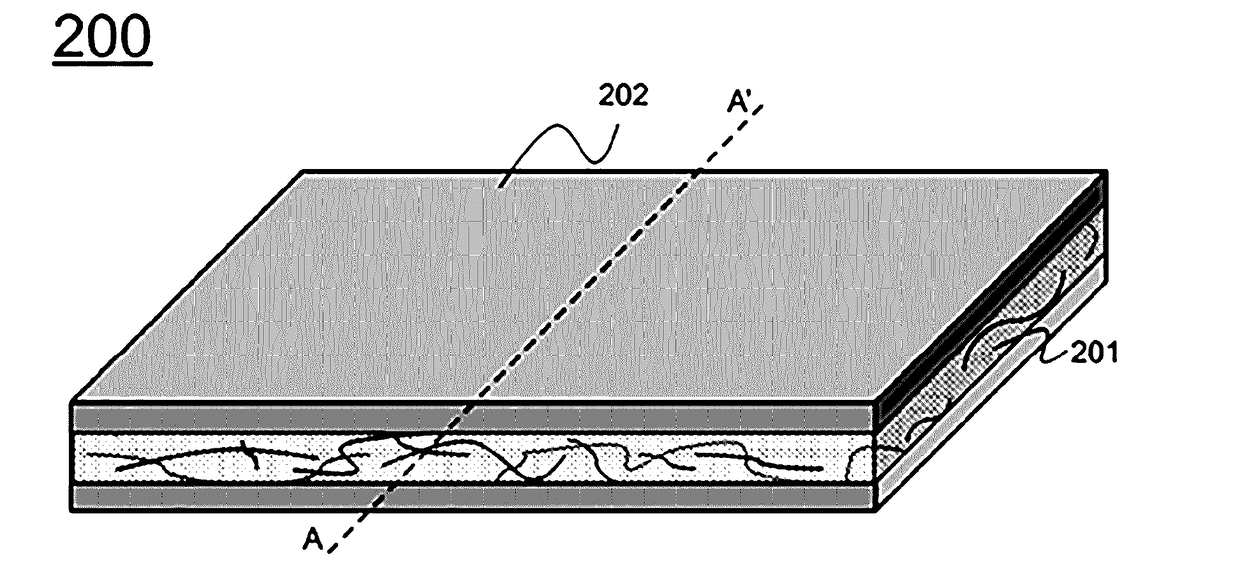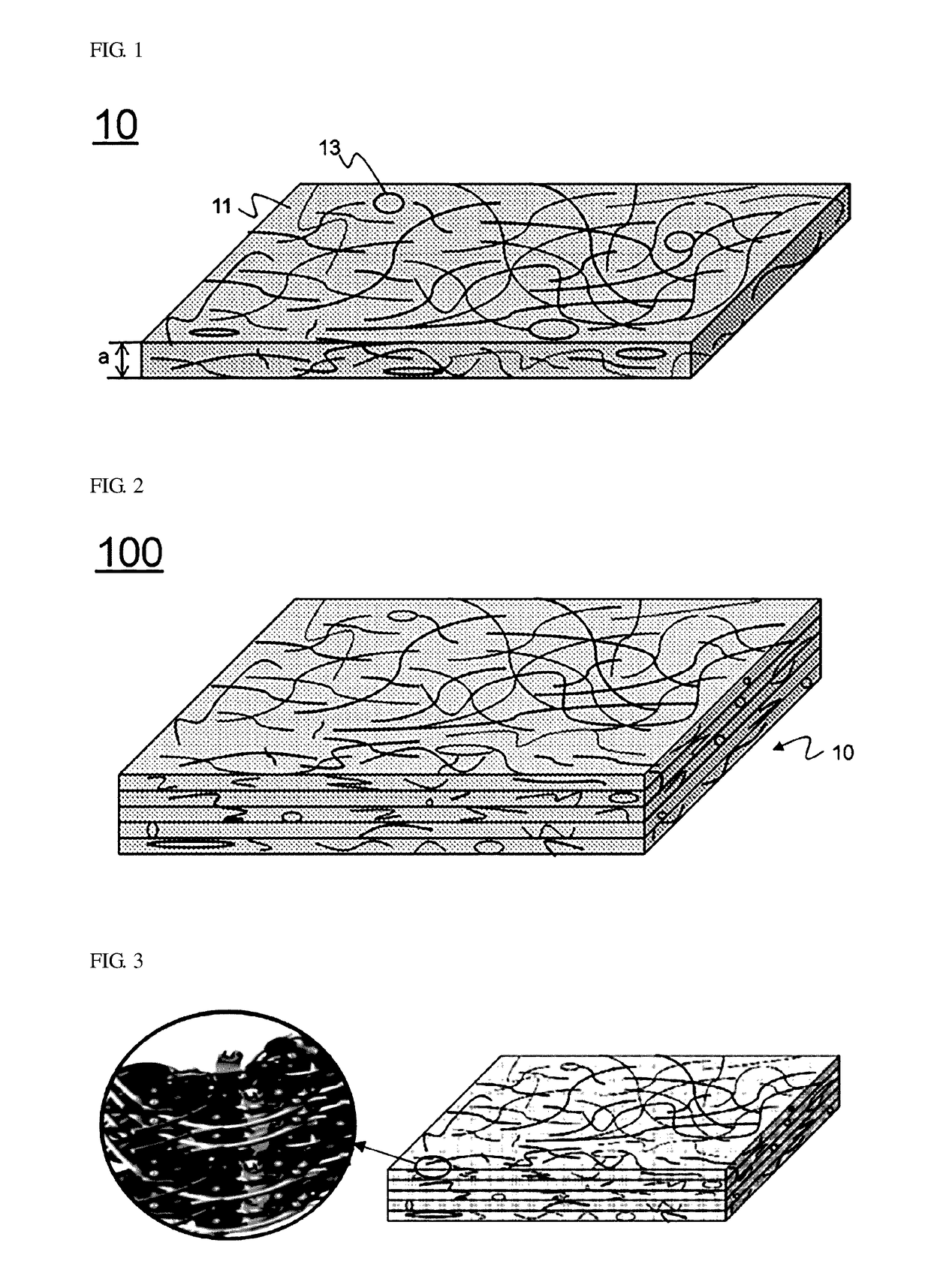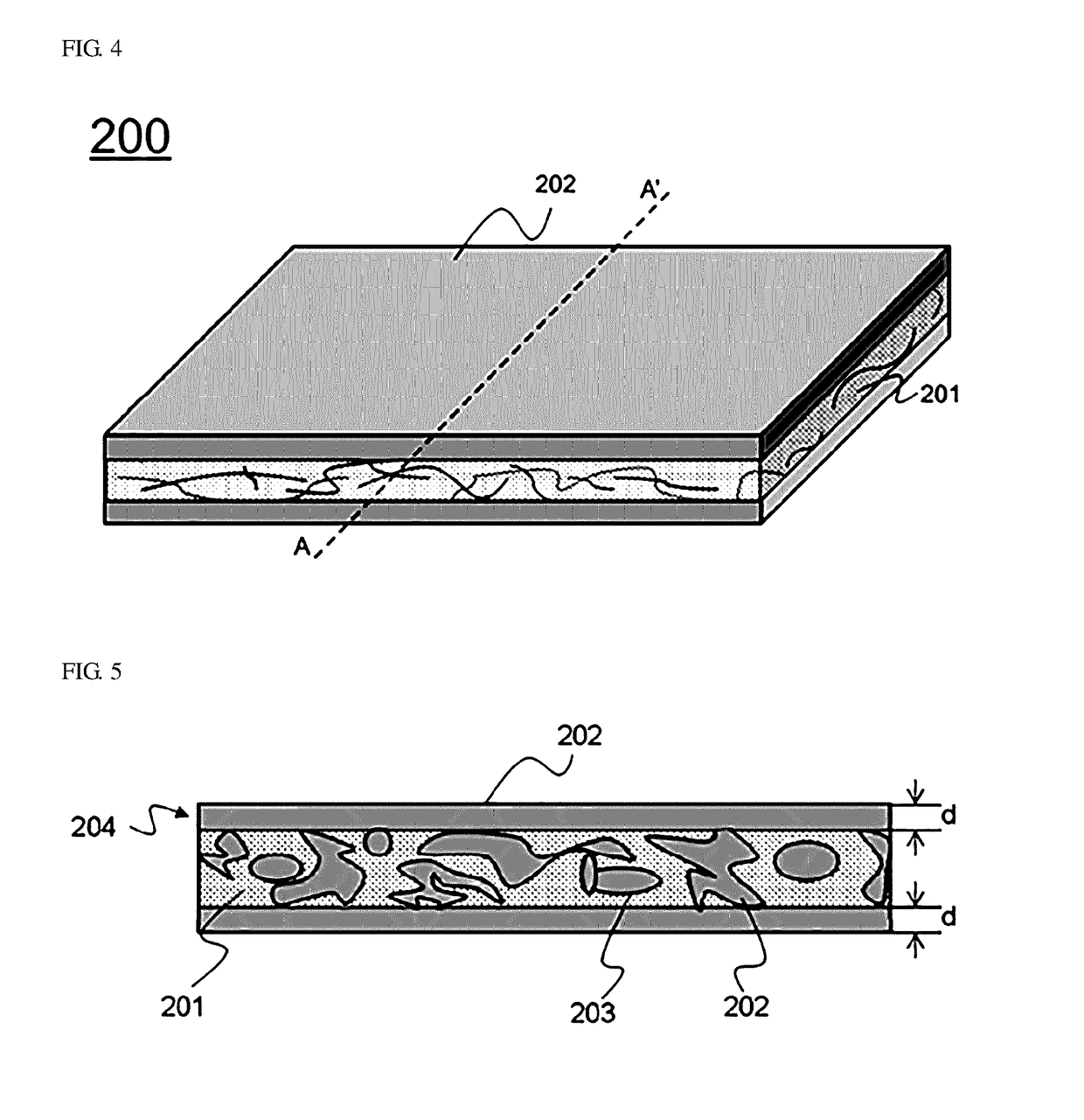Electrode including electrode current collector with three-dimensional network structure
a current collector and electrode technology, applied in the direction of cell components, final product manufacturing, sustainable manufacturing/processing, etc., can solve the problems of increasing the resistance of the electrode, and limited movement speed of lithium ions in the electrode, so as to prevent the increase of internal resistance due to a long moving path of lithium ions, the effect of reducing the overall thickness of the electrod
- Summary
- Abstract
- Description
- Claims
- Application Information
AI Technical Summary
Benefits of technology
Problems solved by technology
Method used
Image
Examples
example 1
[0102]Preparation of Positive Electrode
[0103]LiNi0.55Mn0.30Co0.15O2 as a positive electrode active material, Denka black as a conductive material, and polyvinylidene fluoride as a binder were mixed at a weight ratio of 96:2:2, and N-methyl pyrrolidone (NMP) was added to the mixture to prepare a slurry.
[0104]The slurry was applied on aluminum felt having an average pore diameter of 20 μm, an aspect ratio of 100, and a thickness of 40 μm to obtain a unit positive electrode. The unit positive electrode was dried in a vacuum oven at 120° C., and then two dried unit positive electrodes were laminated and rolled to prepare a positive electrode. Here, a thickness of an electrode including a current collector was 75 m.
[0105]Preparation of Lithium Secondary Battery
[0106]Lithium metal (40 m) was attached to a copper (Cu) foil as a counter electrode and used, and a polyolefin separator was interposed between the positive electrode and the counter electrode, and then an electrolyte in which 1M ...
examples 2 to 4
[0107]A lithium secondary battery was prepared in the same manner as in Example 1, except that an average diameter of the pores of the current collector was changed as shown in Table 1.
example 5
[0108]A lithium secondary battery was prepared in the same manner as in Example 1, except that a thickness of the aluminum felt was changed to 55 μm, and a thickness of the electrode including the current collector was adjusted to 102 μm.
PUM
| Property | Measurement | Unit |
|---|---|---|
| thickness | aaaaa | aaaaa |
| diameter | aaaaa | aaaaa |
| thickness | aaaaa | aaaaa |
Abstract
Description
Claims
Application Information
 Login to View More
Login to View More - R&D
- Intellectual Property
- Life Sciences
- Materials
- Tech Scout
- Unparalleled Data Quality
- Higher Quality Content
- 60% Fewer Hallucinations
Browse by: Latest US Patents, China's latest patents, Technical Efficacy Thesaurus, Application Domain, Technology Topic, Popular Technical Reports.
© 2025 PatSnap. All rights reserved.Legal|Privacy policy|Modern Slavery Act Transparency Statement|Sitemap|About US| Contact US: help@patsnap.com



